How stress affects your brain (in TED-Ed GIFs)
By Lisa LaBracio on March 10, 2016 in TED-Ed Lessons

Are you sleeping restlessly, feeling irritable or moody, forgetting little things, and feeling overwhelmed and isolated? Don’t worry. We’ve all been there. You’re probably just stressed out. Stress isn’t always a bad thing. It can be handy for a burst of extra energy and focus, like when you’re playing a competitive sport, or have to speak in public. But when it’s continuous, the kind most of us face day in and day out, it actually begins to change your brain. Chronic stress, like being overworked or having arguments at home, can affect brain size, its structure, and how it functions, right down to the level of your genes.
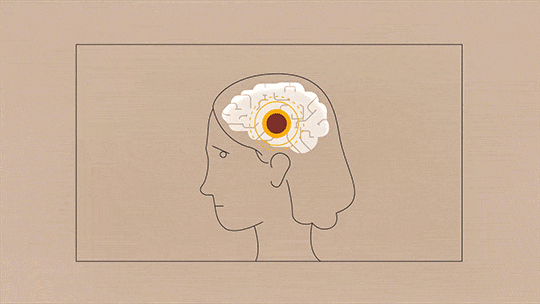
Stress begins with something called the hypothalamus pituitary adrenal axis, a series of interactions between endocrine glands in the brain and on the kidney, which controls your body’s reaction to stress. When your brain detects a stressful situation, your HPA axis is instantly activated and releases a hormone called cortisol, which primes your body for instant action. But high levels of cortisol over long periods of time wreak havoc on your brain. For example, chronic stress increases the activity level and number of neural connections in the amygdala, your brain’s fear center. And as levels of cortisol rise, electric signals in your hippocampus, the part of the brain associated with learning, memories, and stress control, deteriorate.
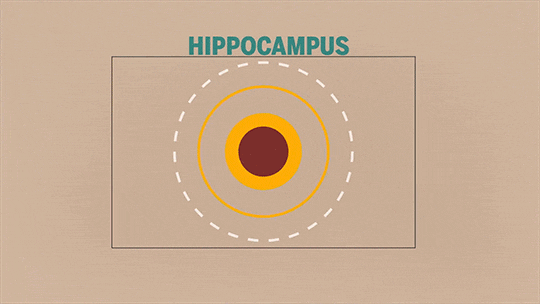
The hippocampus also inhibits the activity of the HPA axis, so when it weakens, so does your ability to control your stress. That’s not all, though. Cortisol can literally cause your brain to shrink in size.
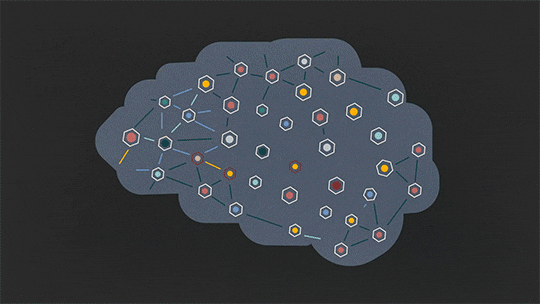
Too much of it results in the loss of synaptic connections between neurons and the shrinking of your prefrontal cortex, the part of your brain the regulates behaviors like concentration, decision-making, judgement, and social interaction. It also leads to fewer new brain cells being made in the hippocampus. This means chronic stress might make it harder for you to learn and remember things, and also set the stage for more serious mental problems, like depression and eventually Alzheimer’s disease.
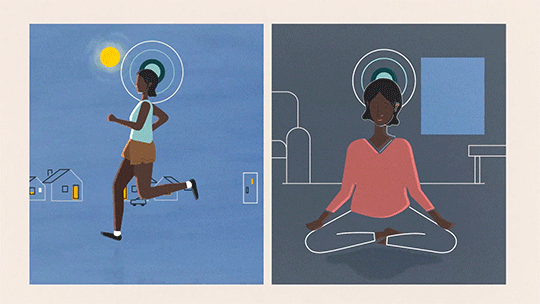
It’s not all bad news, though. There are many ways to reverse what cortisol does to your stressed brain. The most powerful weapons are exercise and meditation, which involves breathing deeply and being aware and focused on your surroundings. Both of these activities decrease your stress and increase the size of the hippocampus, thereby improving your memory.
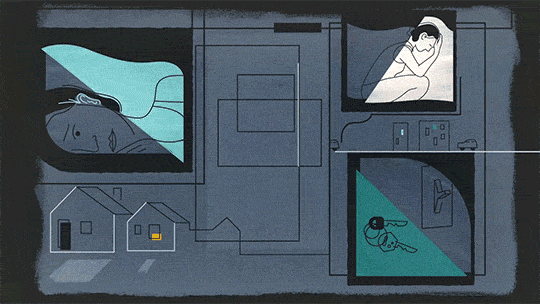
So don’t feel defeated by the pressures of daily life. Get in control of your stress before it takes control of you.
From the TED-Ed Lesson: How stress affects your brain:
Animation by Andrew Zimbelman/TED-Ed
To learn something new every week, sign up here for the TED-Ed Newsletter.
Tags: Andrew Zimbelman, Chronic Stress, Madhumita Murgia